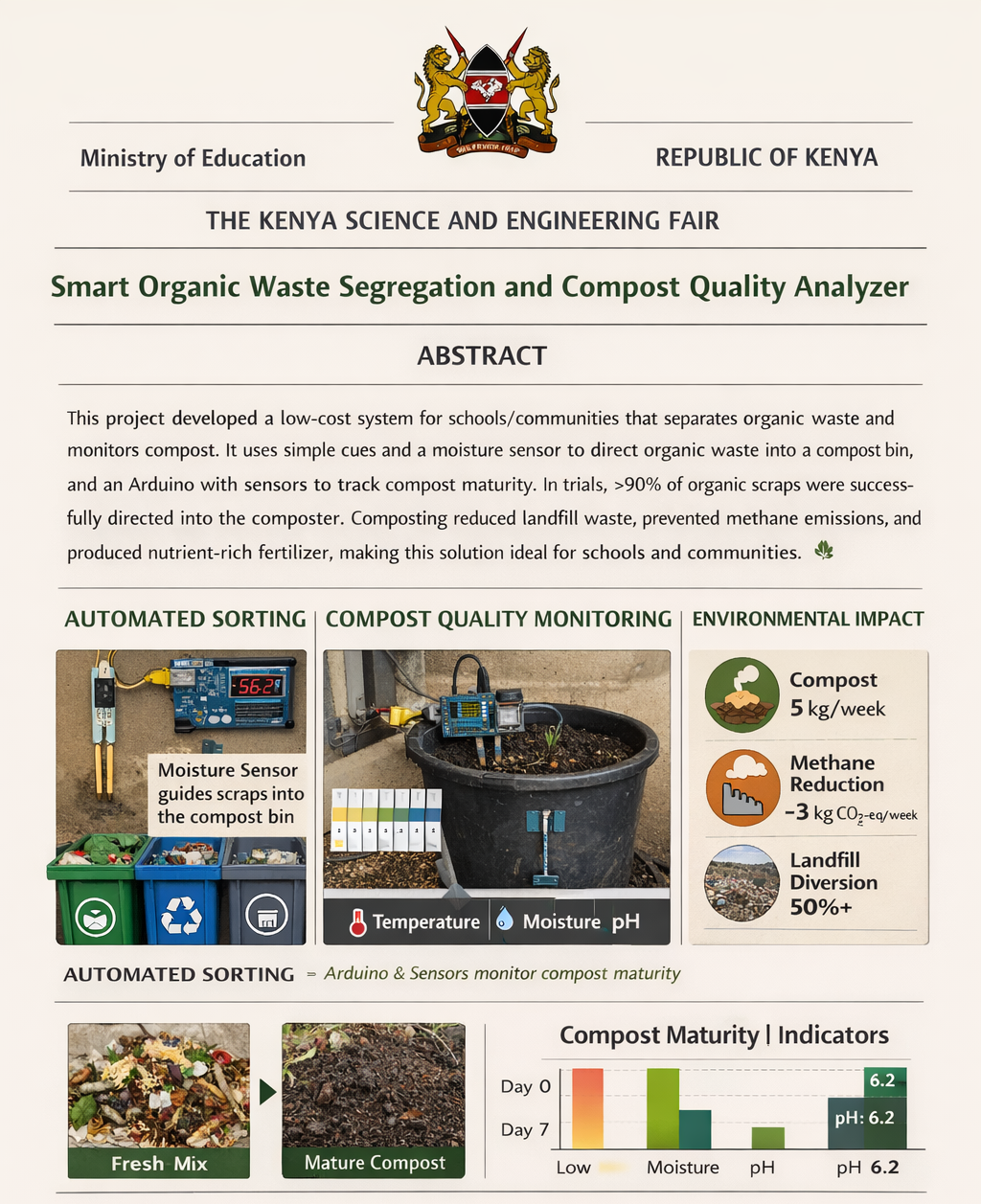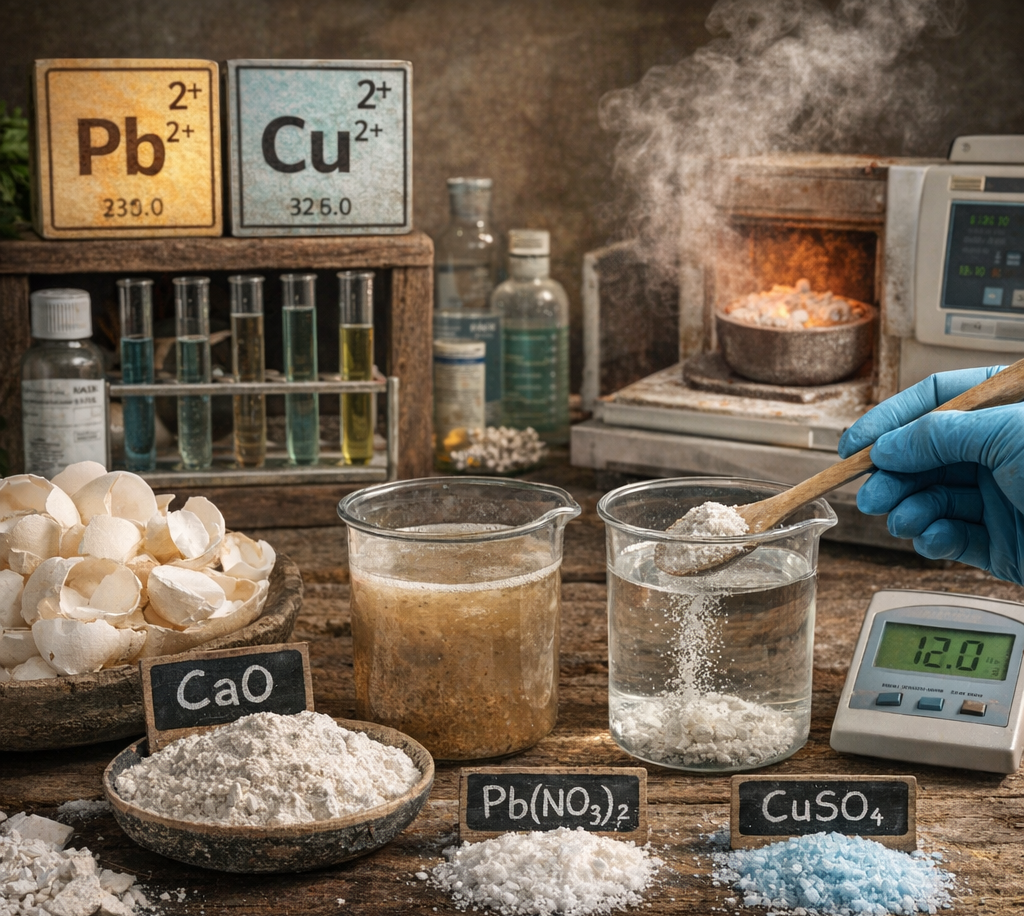 Abstract:
Abstract:
This project explores the use of natural materials—cactus mucilage and moringa seeds—as eco-friendly alternatives for softening and purifying water. Cactus mucilage, rich in polysaccharides, and moringa seeds, known for their flocculant properties, are tested for their ability to remove impurities from hard or contaminated water. The project demonstrates how these natural substances can be used to improve water quality in rural and eco-conscious settings, offering a sustainable solution to water purification challenges.
Statement of the Problem:
Access to clean and safe drinking water remains a significant challenge in many parts of Kenya and other developing countries. Traditional water purification methods often rely on expensive chemical treatments that may not be available in rural or low-income areas. Additionally, hard water, which contains high levels of minerals like calcium and magnesium, can cause various health issues and damage household appliances. There is a need for affordable, sustainable, and locally available solutions to purify and soften water, particularly in areas where resources for commercial water treatments are scarce.
Objective:
The primary objective of this project is to investigate the effectiveness of cactus mucilage and moringa seeds in softening and purifying contaminated or hard water. The project aims to:
- Test the ability of cactus mucilage to remove impurities and soften water.
- Examine the flocculant properties of moringa seeds and their effectiveness in purifying water.
- Compare the efficiency of these natural materials against conventional water treatment methods.
- Provide an affordable, sustainable, and eco-friendly solution for water purification and softening, particularly in rural areas.
Materials:
- Cactus pads (Prickly Pear)
- Moringa seeds (dried and ground)
- Water sample (contaminated or hard water)
- Blender (for processing cactus mucilage)
- Container for mixing
- Strainer or cloth for filtration
- Measuring spoons
- Stirring rod
Methodology:
Step 1: Preparing the Cactus Mucilage
- Cut a cactus pad and carefully remove the thorns.
- Peel the skin and extract the mucilage (gel-like substance) from the inside.
- Mash or blend the mucilage to create a viscous solution.
Step 2: Preparing the Moringa Seeds
- Dry the moringa seeds and grind them into a fine powder or crush them lightly.
- If using whole seeds, crush them to release the flocculant compounds.
Step 3: Treating the Water Sample
- Cactus Mucilage Method: Add a small amount of cactus mucilage to a sample of contaminated or hard water and stir for 3–5 minutes. Allow the solution to settle for 30 minutes.
- Moringa Seed Method: Add crushed or powdered moringa seeds to the same water sample and stir for 3–5 minutes. Allow the water to sit for 30 minutes.
Step 4: Filtration
- After settling, use a cloth or strainer to filter out the clumped particles and impurities from both samples, leaving purified water behind.
Step 5: Evaluation
- Compare the clarity of the water before and after treatment.
- Measure the hardness of the water before and after treatment (if possible, using a water hardness test kit).
- Test the effectiveness of the filtration by observing the reduction in turbidity and impurities.
Results:
- Cactus Mucilage: Demonstrated the ability to soften the water by binding to impurities and settling them at the bottom. Water clarity improved significantly after filtration.
- Moringa Seeds: Showed high efficiency in removing suspended particles and reducing turbidity, with noticeable purification of the water.
- Both methods were effective in improving water quality and softening hard water, with moringa seeds being slightly more efficient at removing fine particles.
Discussion:
Both cactus mucilage and moringa seeds have proven to be effective in softening and purifying water. Moringa seeds, due to their flocculant properties, were particularly effective at removing finer particles, making the water clearer. The cactus mucilage, while less effective at removing very fine particles, was successful in binding larger impurities, which is useful for larger-scale applications. This project highlights the potential for using locally available, natural materials in sustainable water treatment solutions, especially in rural and underserved areas.
Conclusion:
The use of cactus mucilage and moringa seeds offers a viable, low-cost, and environmentally friendly solution for water purification and softening. This project encourages further exploration of natural, sustainable materials for water treatment, contributing to eco-friendly practices in Kenya and beyond.




